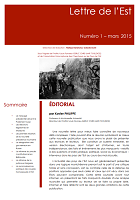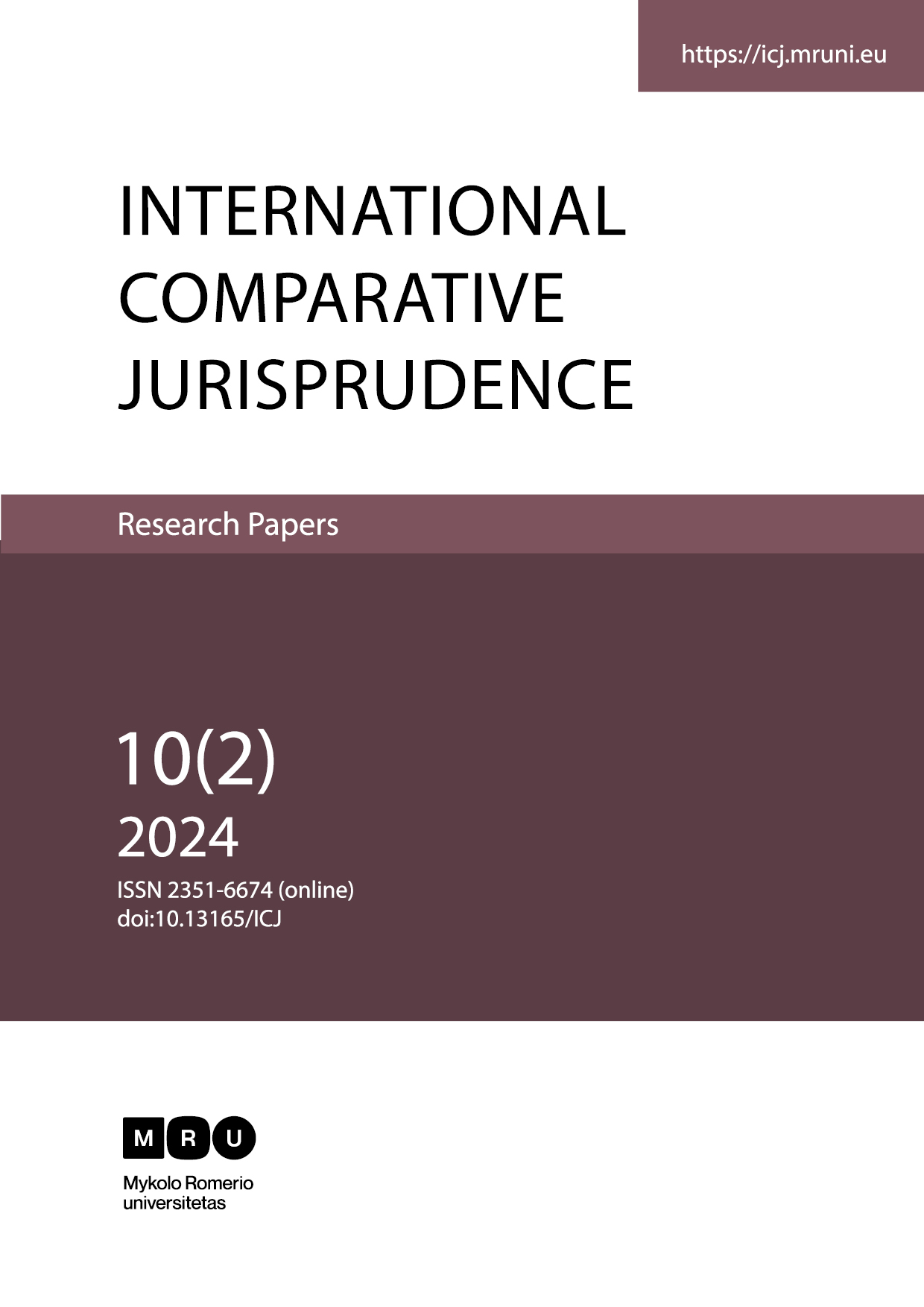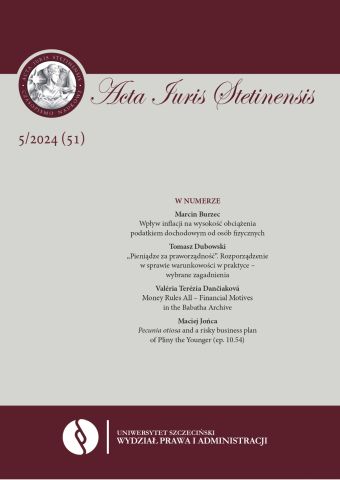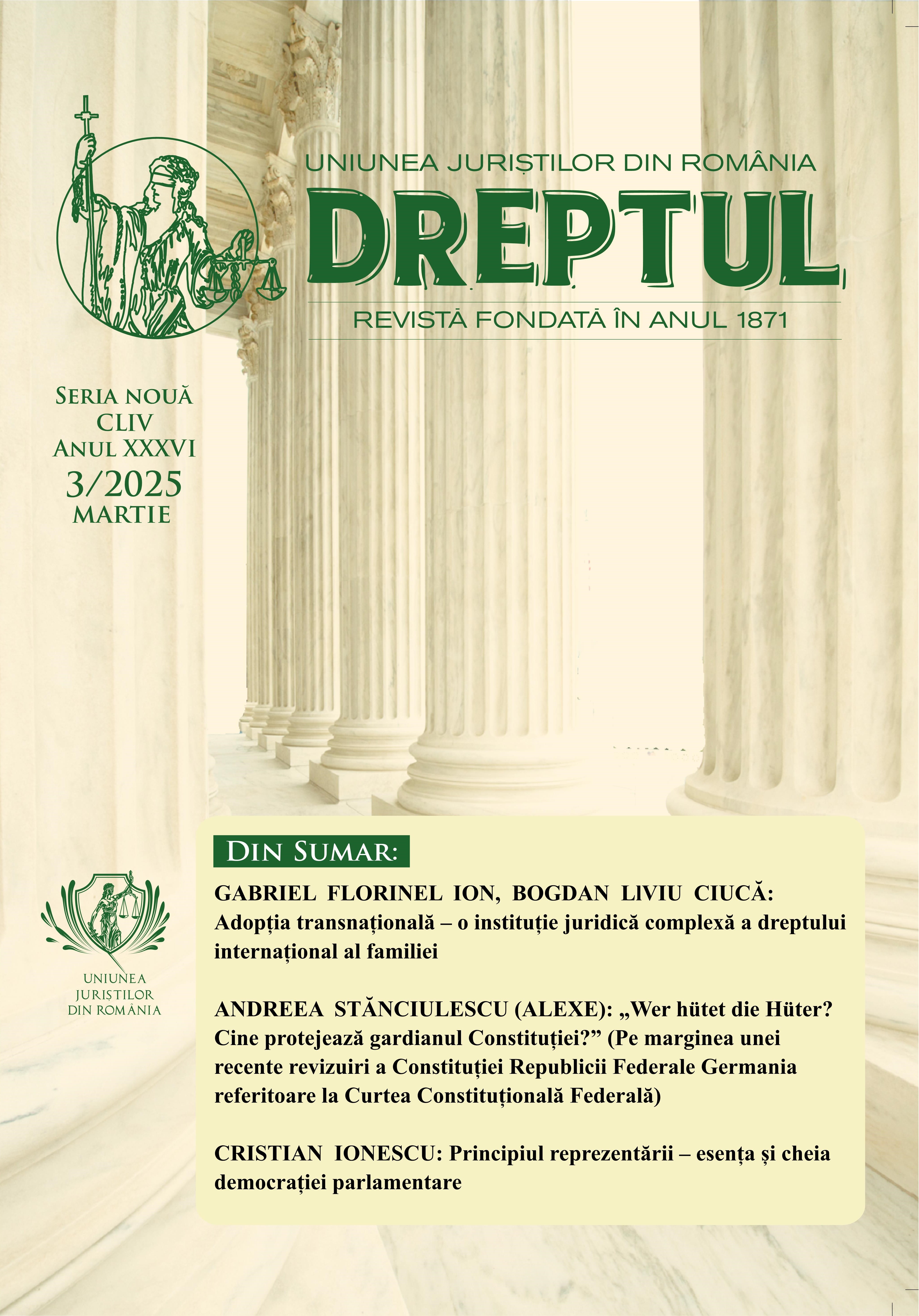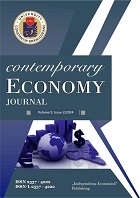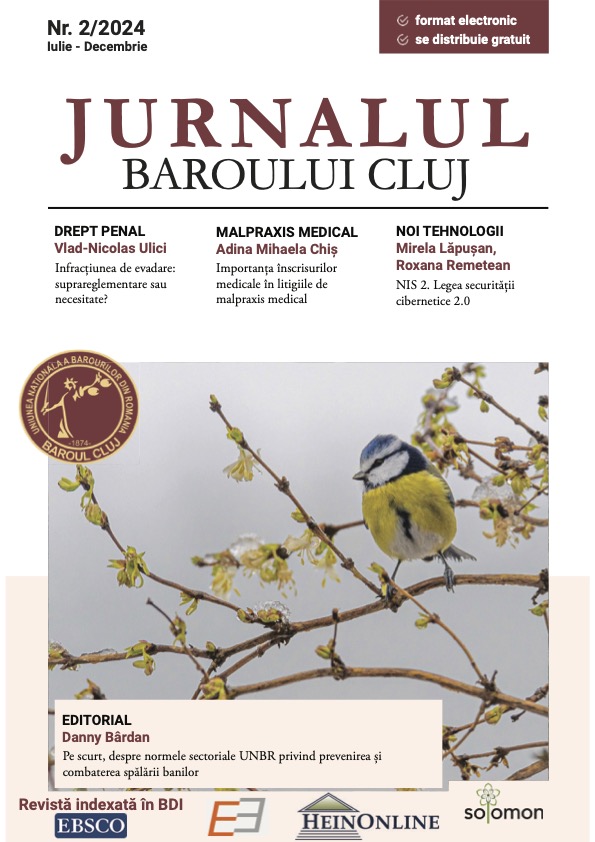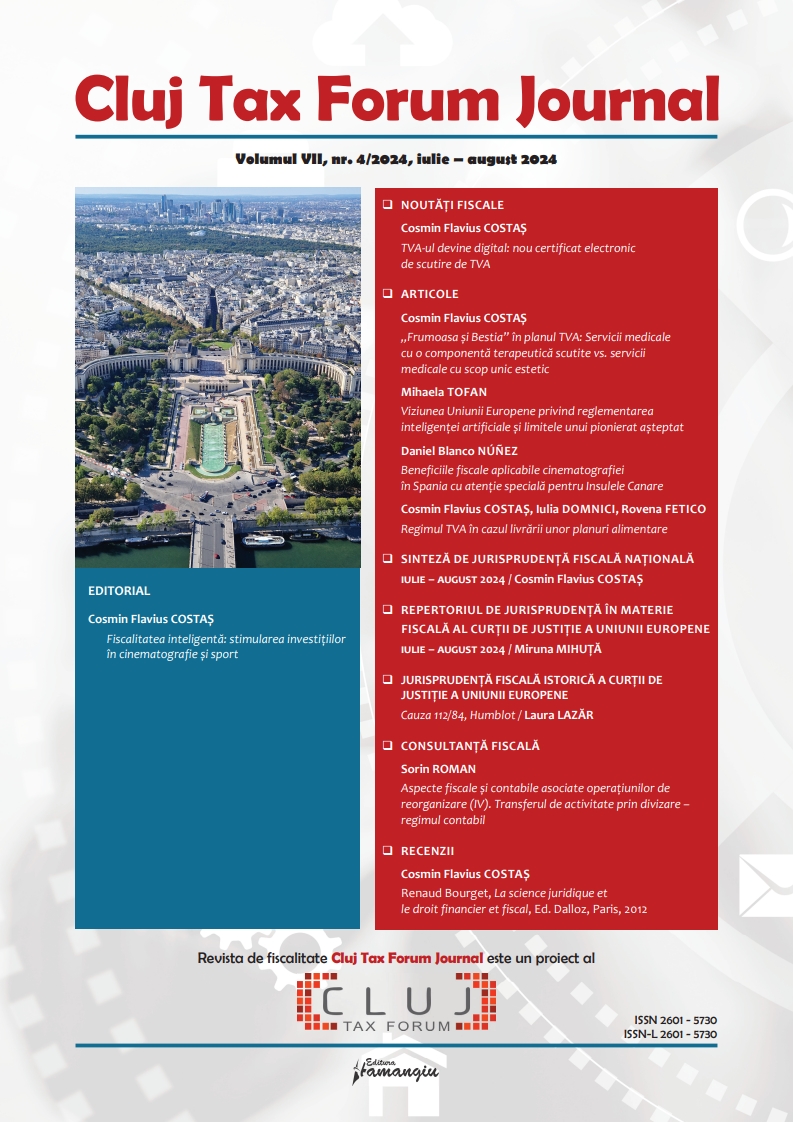Author(s): Miruna Mihuță / Language(s): Romanian
Issue: 4/2024
This article contains the following: Hotărârea Curții din 4 iulie 2024, cauza C‑179/23, având ca obiect o cerere de decizie preliminară formulată în temeiul articolului 267 TFUE de Înalta Curte de Casație și Justiție (România), prin decizia din 15 noiembrie 2022, primită de Curte la 21 martie 2023, în procedura Centrul Român pentru Administrarea Drepturilor Artiștilor Interpreți (Credidam) împotriva Guvernului României, Ministerului Finanțelor. / Hotărârea Curții din 4 iulie 2024, cauza C‑87/23, având ca obiect o cerere de decizie preliminară formulată în temeiul articolului 267 TFUE de Administratīvā apgabaltiesa (Curtea Administrativă Regională, Letonia), prin decizia din 14 februarie 2023, primită de Curte la 15 februarie 2023, în procedura Biedrība „Latvijas Informācijas un komunikācijas tehnoloģijas asociācija” împotriva Valsts ieņēmumu dienests. / Hotărârea Curții din 11 iulie 2024, cauza C‑182/23, având ca obiect o cerere de decizie preliminară formulată în temeiul articolului 267 TFUE de Naczelny Sąd Administracyjny (Curtea Supremă Administrativă, Polonia), prin decizia din 18 ianuarie 2023, primită de Curte la 22 martie 2023, în procedura Dyrektor Krajowej Informacji Skarbowej împotriva J.S. / Hotărârea Curții din 11 iulie 2024, cauza C‑184/23, având ca obiect o cerere de decizie preliminară formulată în temeiul articolului 267 TFUE de Bundesfinanzhof (Curtea Federală Fiscală, Germania), prin decizia din 26 ianuarie 2023, primită de Curte la 22 martie 2023, în procedura Finanzamt T împotriva S.
More...
